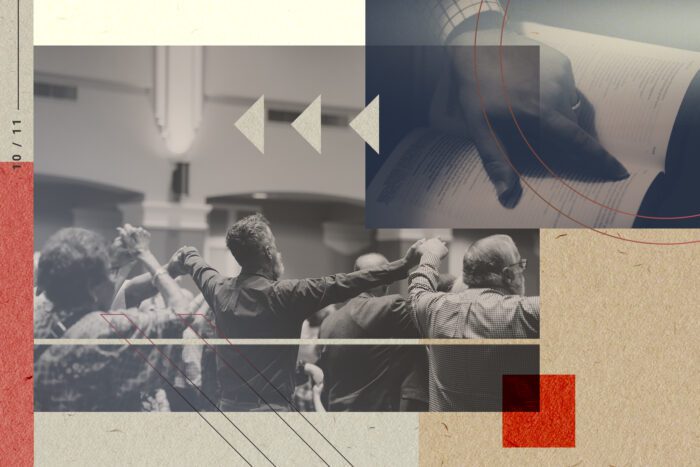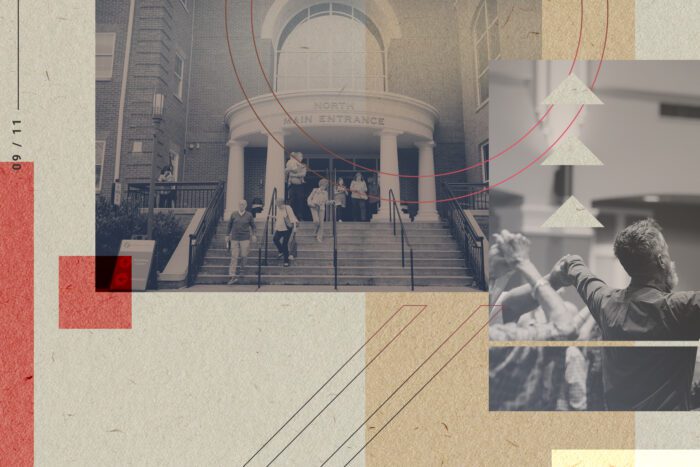Editor’s note: This year marks the centennial anniversaries of the Cooperative Program’s creation, the adoption of the Baptist Faith & Message, and the SBC’s ownership of Southwestern Seminary. To celebrate these 100 years of Southern Baptist cooperation, Southwestern has compiled eleven essays from key Southern Baptist leaders and seminary faculty for an original series on the ETC blog. The entire series, which will publish over the course of eleven weeks, will be available here.
Christians are a cooperative people. From the earliest days of Christ’s Church, Christians cooperated to meet each other’s needs (Acts 2 and 11) and to support missions endeavors (Acts 13-14). Financial funding for Gospel action has presented challenges from the beginning. Financial cooperation in Acts 2:45 set a high standard, but by Acts 5 Ananias and Sapphira illustrated the financial temptations that threatened God’s people. People falsely bearing the name of Christ for financial gain remained such a threat in the early churches that the second-century Christian document The Didache warned that any traveling preacher that asked for money proved himself to be a false prophet.
Southern Baptists have always shared a common desire to support missions. Cooperation is so important to Southern Baptists that they included an article on “Cooperation” in The Baptist Faith and Message:
Christ’s people should, as occasion requires, organize such associations and conventions as may best secure cooperation for the great objects of the Kingdom of God. Such organizations have no authority over one another or over the churches. They are voluntary and advisory bodies designed to elicit, combine, and direct the energies of our people in the most effective manner. Members of New Testament churches should cooperate with one another in carrying forward the missionary, educational, and benevolent ministries for the extension of Christ’s Kingdom. Christian unity in the New Testament sense is spiritual harmony and voluntary cooperation for common ends by various groups of Christ’s people. Cooperation is desirable between the various Christian denominations, when the end to be attained is itself justified, and when such cooperation involves no violation of conscience or compromise of loyalty to Christ and His Word as revealed in the New Testament.
For the first eight decades as a Convention, however, Southern Baptist cooperative efforts often relied on ineffective and insufficient methods of raising financial support. Each ministry was responsible for its own funding. This meant that fundraising agents from Baptist missions agencies, colleges, seminaries, hospitals, orphanages, and various other ministries crisscrossed the region requesting donations for their respective employers. This system of traveling fundraisers proved inefficient, insufficient, inequitable, and inconvenient.
Pastors of financially strong Baptist churches in larger cities were constantly barraged with itinerant fundraisers to the detriment of their pulpit ministries. Whereas congregations rich in faith but poor in this world received few opportunities to serve the Lord through sacrificial giving to cooperative missions efforts. Fundraising agents showed favoritism to the richer congregations and competed with one another for limited resources. Skilled agents could earn good money for their efforts, and the various ministries paid handsomely in hopes of funding their efforts. Two representative statistics demonstrate the inefficiency of this system. In 1876, 44% of the Foreign Mission Board’s expenses were administrative, with the largest percentage going to fundraising agents.1 Whereas the Home Mission Board reported in 1883 that their fundraising agents’ salaries and expenses amounted to 53% of the money they raised.2 This inefficient system endured through World War I.
World War I inaugurated an era of greater civic cooperative efforts in the United States. To finance the war effort, the U.S. government introduced the Liberty Bond. Caught up in a swell of patriotism, Americans across the country purchased Liberty Bonds. In this same era, many American religious groups seized upon this idea of collaborative funding efforts. Thus, financial pledge drives emerged among American Baptists, Presbyterians, Disciples, and Reformed. The most consequential of which was the Southern Baptist Seventy-five Million Campaign, which led to the formation of the Cooperative Program of Southern Baptists.
In May 1919, the Southern Baptist Convention met in Atlanta, Georgia. SBC President J.B. Gambrell addressed the Convention. He stated, “The triumph of the rights of humanity by the defeat of the Central Powers in the war, brings the world to the dawn of a new era in civilization. … This Convention sits in council today to devise ways and means to meet the solemn responsibilities of this challenging hour.” After a lengthy criticism of the War Department’s religious policies which lumped all Protestants together in a confessionless mishmash, Gambrell made a call for Baptists to move forward after the war into a new, cooperative effort. He called Southern Baptists to, “summon ourselves and our people to a new demonstration of the value of orthodoxy in free action.” He encouraged them to make “a rallying call to unite to make effective in all lands the unique message of Christ and His apostles which we hold in trust for our brothers in every part of the world, to the end that humanity may be made free with the freedom wherewith Christ liberates individuals and nations. Only the Truth can make the world free and safe.”3 This rallying cry resulted in a motion by the Committee on Financial Aspect of Enlarged Program calling for Southern Baptists to raise $75,000,000 in a five-year span to be divided among Southern Baptist cooperative ministries. This ambitious effort became known as the Seventy-five Million Campaign.
Southern Baptists leapt into action to reach this lofty financial goal. The Financial Campaign Committee, headed by George Truett and L.R. Scarborough, set about a whirlwind fundraising drive culminating in Victory Week November 30-December 7, 1919. Rather than solicit donations, the campaign called for Southern Baptists to make donation pledges for the next five years. Rather than fundraising agents for individual enterprises, thousands of Southern Baptists traveled America as “four-minute speakers” (a tactic derived from successful Liberty Bond drives) raising funds for all Southern Baptist efforts.4 L.R. Scarborough, second president of Southwestern Seminary, left the seminary in the capable hands of W.W. Barnes to travel seeking to raise “Millions for the Master” and to “Call out the called.” The Seventy-five Million Campaign not only elicited pledges for donations, but Scarborough and others sought to call more individuals to Christian service. Under Scarborough’s leadership the Campaign featured a “Calling Out the Called” Sunday in October that saw thousands across the country devote their lives to Christian service. By the end of 1919, Southern Baptists had pledged over $92 million to the Seventy-five Million Campaign. The promised $92 million in ministry funding never materialized due to the massive economic downturn of 1920. In the end, only around $58.5 million was received by the end of the campaign. This shortfall left SBC entities in debt due to loans made against the pledged donations. Yet, $58.5 million raised in five years was exponentially higher than Southern Baptists had previously raised, and the Seventy-five Million Campaign included thousands more congregations donating to SBC ministries for the first time. Though, in a sense, the Seventy-five Million Campaign failed, it succeeded in uniting Southern Baptists in cooperative efforts and flooding Southern Baptist colleges, seminaries, and missions organizations with more people eager to participate in God’s work.
In the final year of the Seventy-five Million Campaign, pastor M.E. Dodd led Southern Baptists to consider how to channel cooperative efforts in a more regular and efficient program that would last beyond a short-term giving campaign. Under his influence, the SBC annual meeting in 1924 called on Southern Baptists to “conduct an every-member canvass of individual pledges for state- and Convention-wide causes for the year 1925.”5 These pledges would form the basis of state and national convention budgets, which would then allow for reliable budgets for Convention ministries. According to this program, churches would give budgeted funds to their state conventions who would send a portion of those funds to the Southern Baptist Convention. The bulk of funds would go towards missions.
The Cooperative Program allowed autonomous congregations to work together with clearly identified priorities. This new system provided Southern Baptist collaborative ministries with needed funds at a fraction of the cost of employing independent fundraising agents. Wealthy churches no longer were subjected to constant requests for donations, and smaller congregations were able to participate in Great Commission giving as equals. The Cooperative Program does not rely on a few, wealthy donors. Rather, in keeping with Baptist principles of the priesthood of all believers, soul competency, and congregational polity, the Cooperative Program relies on everyday church members donating to their local churches who donate to their state conventions who donate to SBC causes. As Jeff Iorg has written, “rank-and-file Baptists make it happen a few dollars at a time, resulting in a steady stream of millions of dollars flowing to national and global causes.”6
The Baptist Faith and Message states, “Members of New Testament churches should cooperate with one another in carrying forward the missionary, educational, and benevolent ministries for the extension of Christ’s Kingdom.” The Cooperative Program enables Baptists to cooperate in such endeavors more efficiently than any other program. Southern Baptists from small, average, or mega-churches are all able to donate through and rely on the Cooperative Program in their obedience to the Lord’s Great Commission. In an age well over a century past the days of traveling Southern Baptist fundraising agents, many Southern Baptists do not understand what a blessing the Cooperative Program remains to their congregations. This year’s one hundredth anniversary of the Cooperative Program affords us an opportunity to praise the Lord for what He has done through Southern Baptists and recommit ourselves to greater cooperation.
- Brand and Hankins, On Sacred Effort (B&H, 2005), 91. ↩︎
- Ray and Ray, Cooperation, (SBC, 1985), 24. ↩︎
- Annual of the Southern Baptist Convention 1919, 17-23. ↩︎
- See McBeth, The Baptist Heritage, (Broadman, 1987), 618-621. ↩︎
- Brand & Hankins, 96. ↩︎
- Jeff Iorg, “Foreward,” xiv, in Tony Wolfe and Madison Grace, eds. A Unity of Purpose: 100 Years of the SBC Cooperative Program. (B&H, 2025). ↩︎








